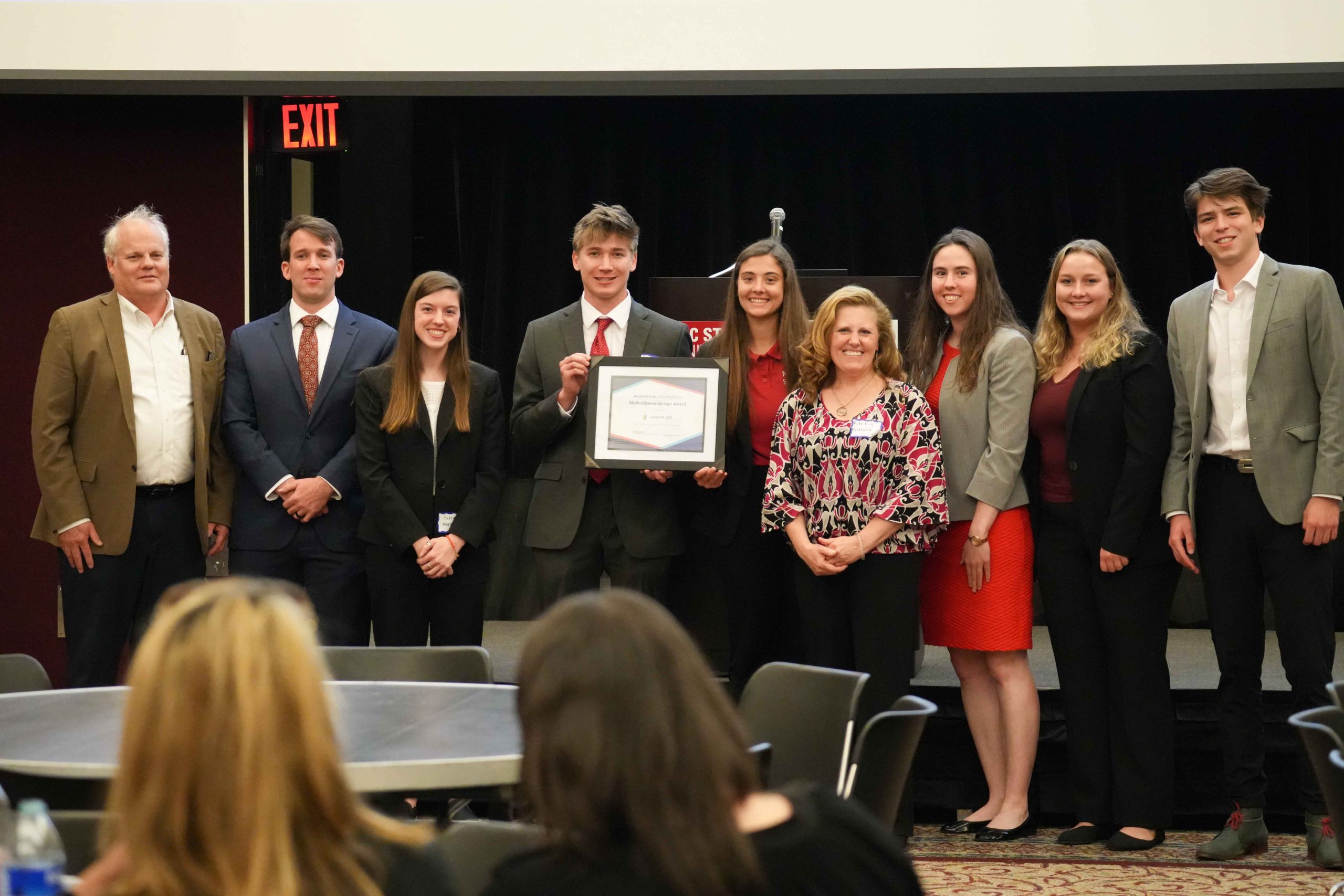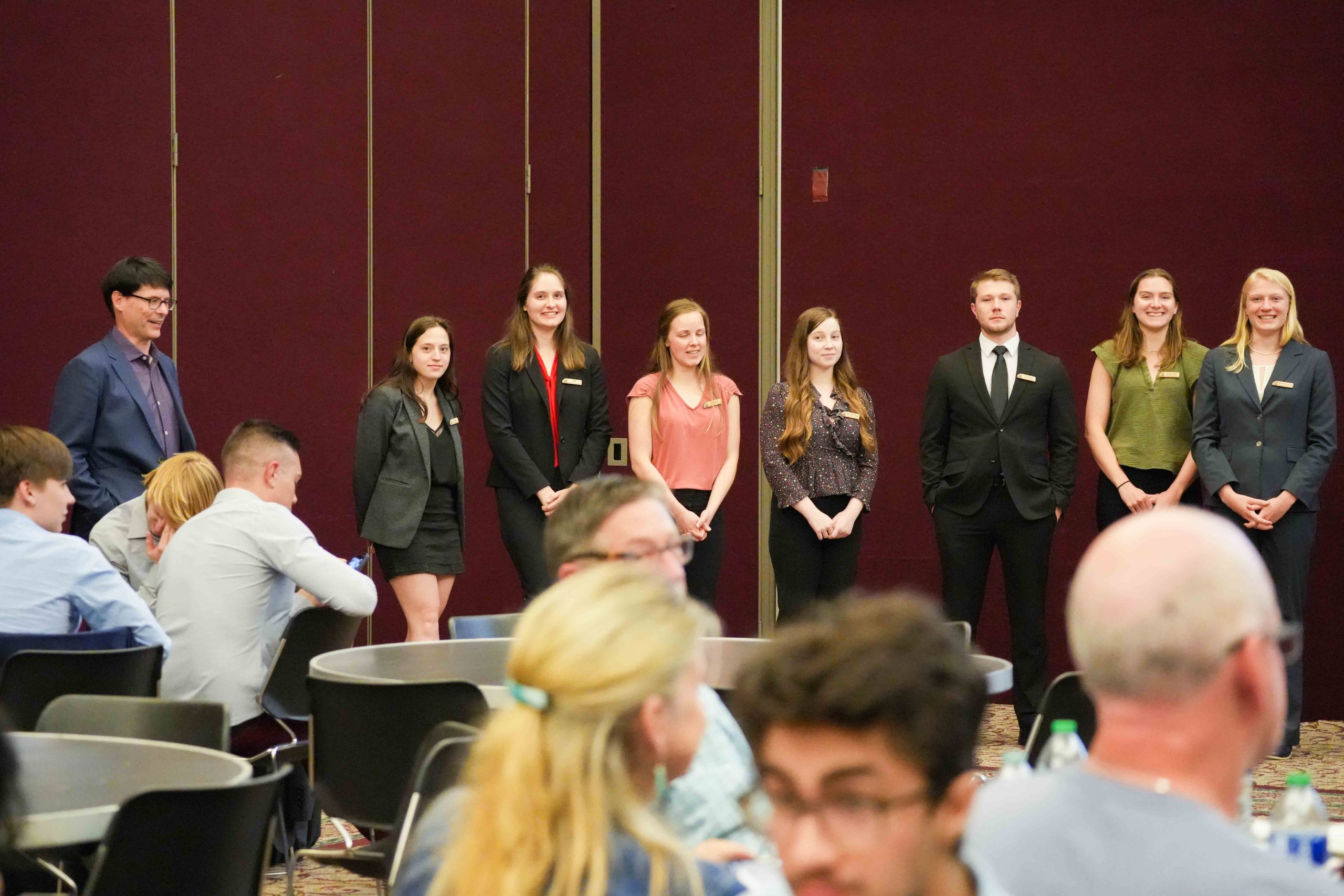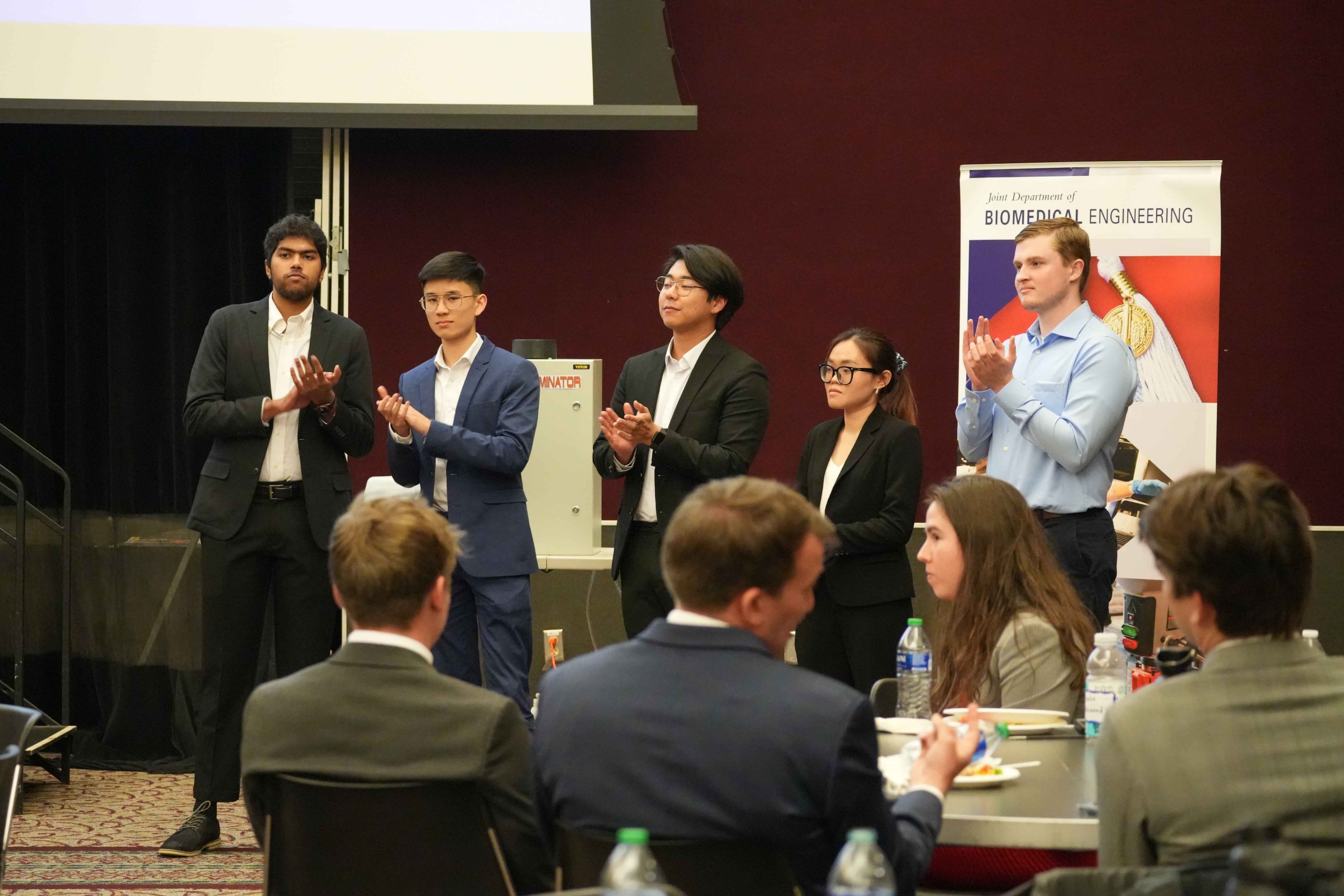The i4 Program is a novel initiative within the Joint Department of Biomedical Engineering that melds traditional undergraduate engineering education with biomedical entrepreneurship. Composed of four phases of need Identification, Ideation, Innovation and Implementation, this design program culminates in an annual competition awarding a financial prize that supports further intellectual property development and the eventual formation of student-founded companies. Bringing talented students together with highly accomplished academic, clinical and industry professionals, the i4 Program drives young, innovative entrepreneurship into the Triangle region while fostering the creation of practical solutions to real-world problems.
i4 Team participants and winners were announced on April 18th at the 2023 Student Design Symposium.
written by Kathleen Clardy for Joint BME Communications
This year, the first-place award was sponsored by MethodSense, which is an RTP-based Regulatory Affairs and Quality Assurance consultancy and developer of LuminLogic software. They are focused on the medical device and combination product industries, and they’ve earned an international reputation for successfully addressing challenging projects and fast becoming a premier company for developing a professional career in life science consulting.
Rita King, CEO and Senior Regulatory Consultant, and Russ King, President of MethodSense, have served as mentors to our students and participated in Student Design as lecturers to design classes. MethodSense sponsored a first-place $10,000 award to an i4 team to encourage students to think beyond their innovation product to consider the path to market, including regulatory concerns, reimbursement and capital needs.
The MethodSense Design Award went to Handm-Aid for developing an innovative cleaning device for laparoscopic instruments that ensures the removal of biofilm after a surgical procedure and before sterilization. This will lead to a reduced risk of infection from following procedures using laparoscopic instruments that have biofilm remaining after the current cleaning process.
The second i4 award in the amount of $5,000 went to Monday Morning Medical for designing an original test strip that analyzes biomarkers for wound healing in an effort to provide concrete evidence of wound progression to the clinician. The test strip uses ELISA technology to analyze the concentration of MMP-2, a biomarker that increases to a concentration of 0.22 µg/mL and then decreases in a wound that is healing normally. Monday Morning Medical’s solution will help clinicians determine when to remove surgical drains in order to limit infection and seroma of the wound.
The third i4 award in the amount of $2,500 went to EnteroFlux. Of the 320,000 cases of colectomy, a common colon reattachment surgical procedure to treat colon cancer performed yearly, about 18% leak following the surgery, causing life-threatening complications and repeat procedures with high mortality rates. The onset of these post-operative anastomotic leaks (AL) is still unknown; visible symptoms are often detected 5 to 7 days after surgery, but leaks may occur earlier. EnteroFlux proposes a continuous optical sensing system that notifies healthcare providers of an AL as early as 12 hours after the surgery while being noninvasive. Our device minimizes the likelihood of complications and improves patient outcomes.
An additional i4 Team, Captio Innovations, participated in private pitches at the Student Design Symposium. Epilepsy is a seizure disorder in the nerve cell activity in the brain, resulting in permanent damage or even death. In the U.S., there are 3.4 million people with epilepsy, and 1 out of 1000 will die of Sudden Unexpected Death in Epilepsy (SUDEP), which is around ~3400 people a year. Current systems rely on movement to detect seizures as they occur and range from mattress devices to watch apps. These monitors rely on passive detection of motion and not active biological cues that can predict the event. These devices are not efficient enough, as reflected by the number of deaths each year. Captio’s proposed solution is to design a sensor that analyzes biological cues to predict SUDEP.





